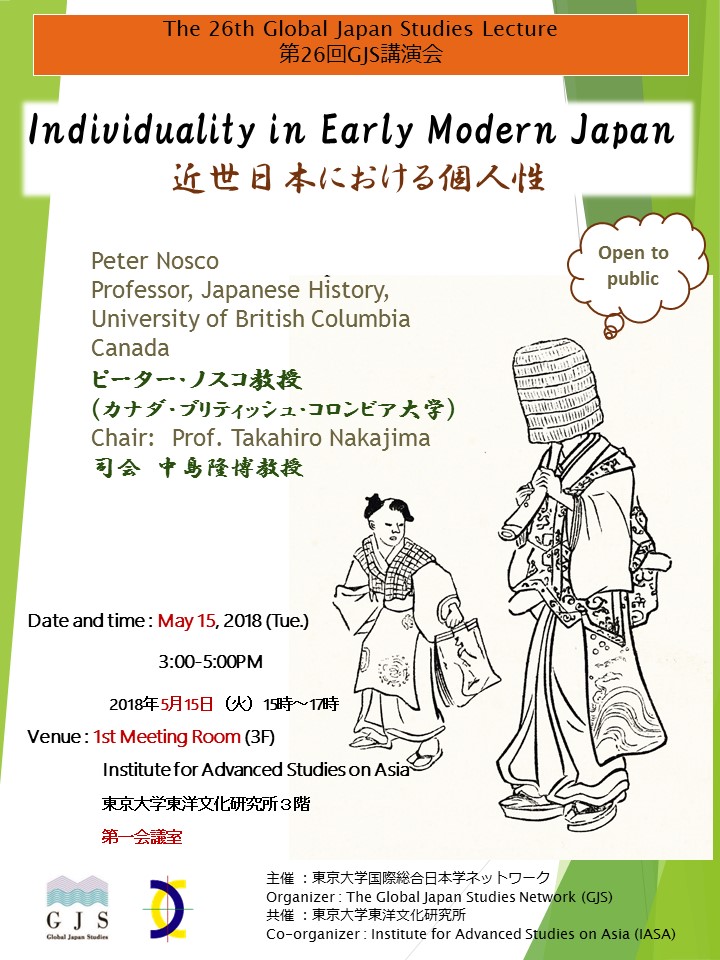Report
On May 15, 2018, Professor Peter Nosco from the University of British Columbia gave a talk entitled ‘Individuality in Early Modern Japan: Thinking for Oneself', which is based on his recently published monograph of the same title both in Japanese and in English. His talk revolved around a provocative question: whether individuality in Japan was prominent two centuries ago than today. Beginning from the explanation of how he found his way to this inquiry, Professor Nosco, by drawing on some examples, effectively demonstrated how individuality is considered to have been more prevailing in Edo Japan than in the Meiji period and possibly in this Heisei period. The lively discussion that followed the talk ultimately converged into the question of if “individuality” can be translated into “kosei” in Japanese, which highlighted the importance of language and contexts in historical bilingual research.
Date and time: May 15, 2018 (Fri.), 3:00-5:00PM
Venue: 1st Meeting Room (3rd Floor), The Institute for Advanced Studies on Asia, University of Tokyo
Speaker: Peter Nosco (Professor, Japanese History, University of British Columbia, Canada)
Language: English
Abstract:
The primary goal of my recently published scholarship has been to challenge a number of long-standing assumptions regarding various aspects of Japanese society before the Meiji period, and secondarily to examine briefly these same aspects of Japanese society in the early twenty-first century. In this scholarship I have focused on the construction of individual identity, aggressive pursuit of self-interest, defiant practice of forbidden religious traditions, interest in self-cultivation and personal betterment, understandings of happiness and well-being, and embrace of “neglected” counter-ideological values. In the book–and in this presentation–I argue that taken together these point to higher degrees of individuality in early modern Japan than has heretofore been acknowledged, and I invite consideration of whether these aspects of individuality in Japan may have been more prominent two centuries ago than today.
Organizer: The Global Japan Studies Network (GJS)
Co-organizer: Institute for Advanced Studies on Asia, the University of Tokyo (IASA)

